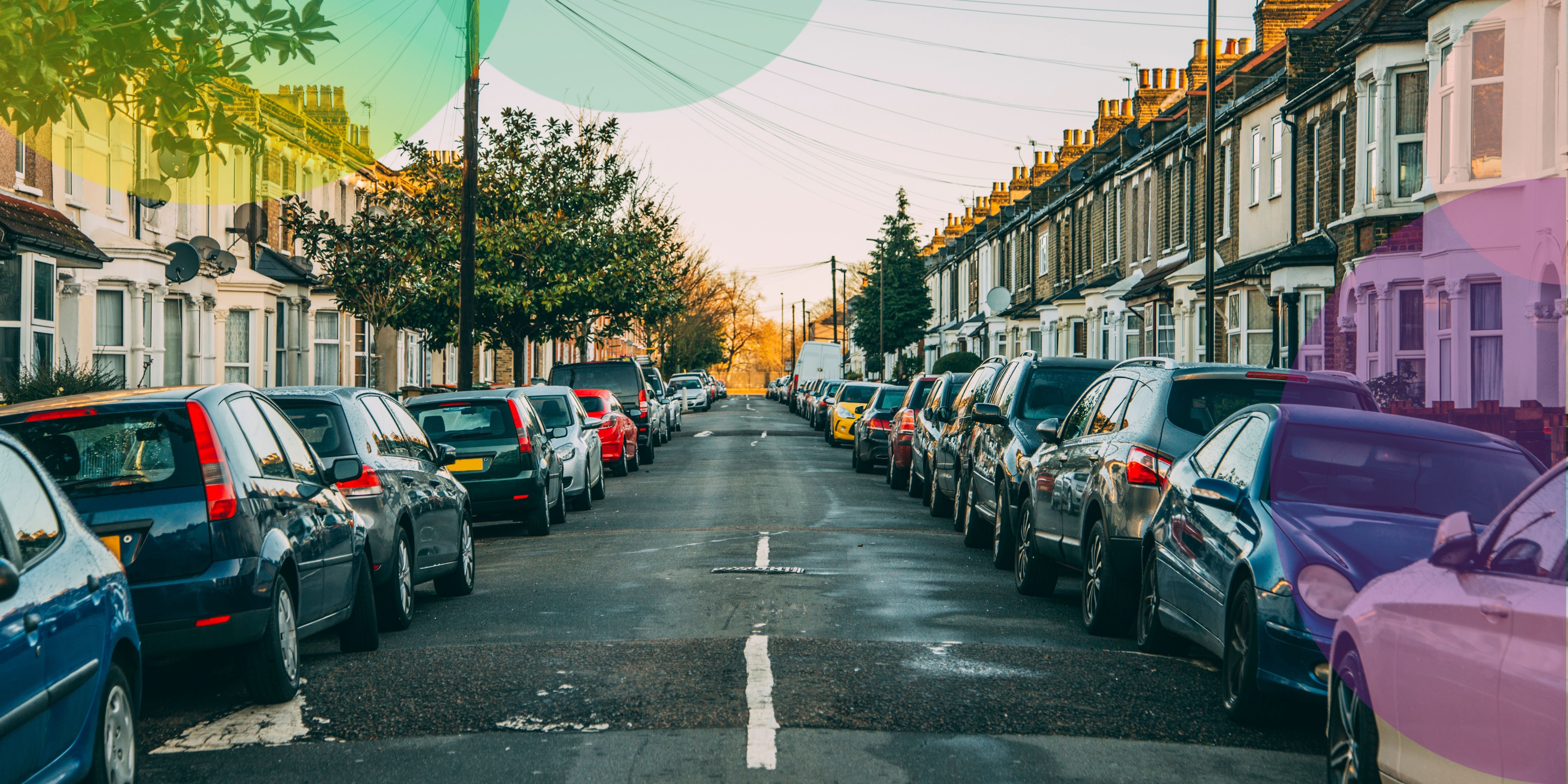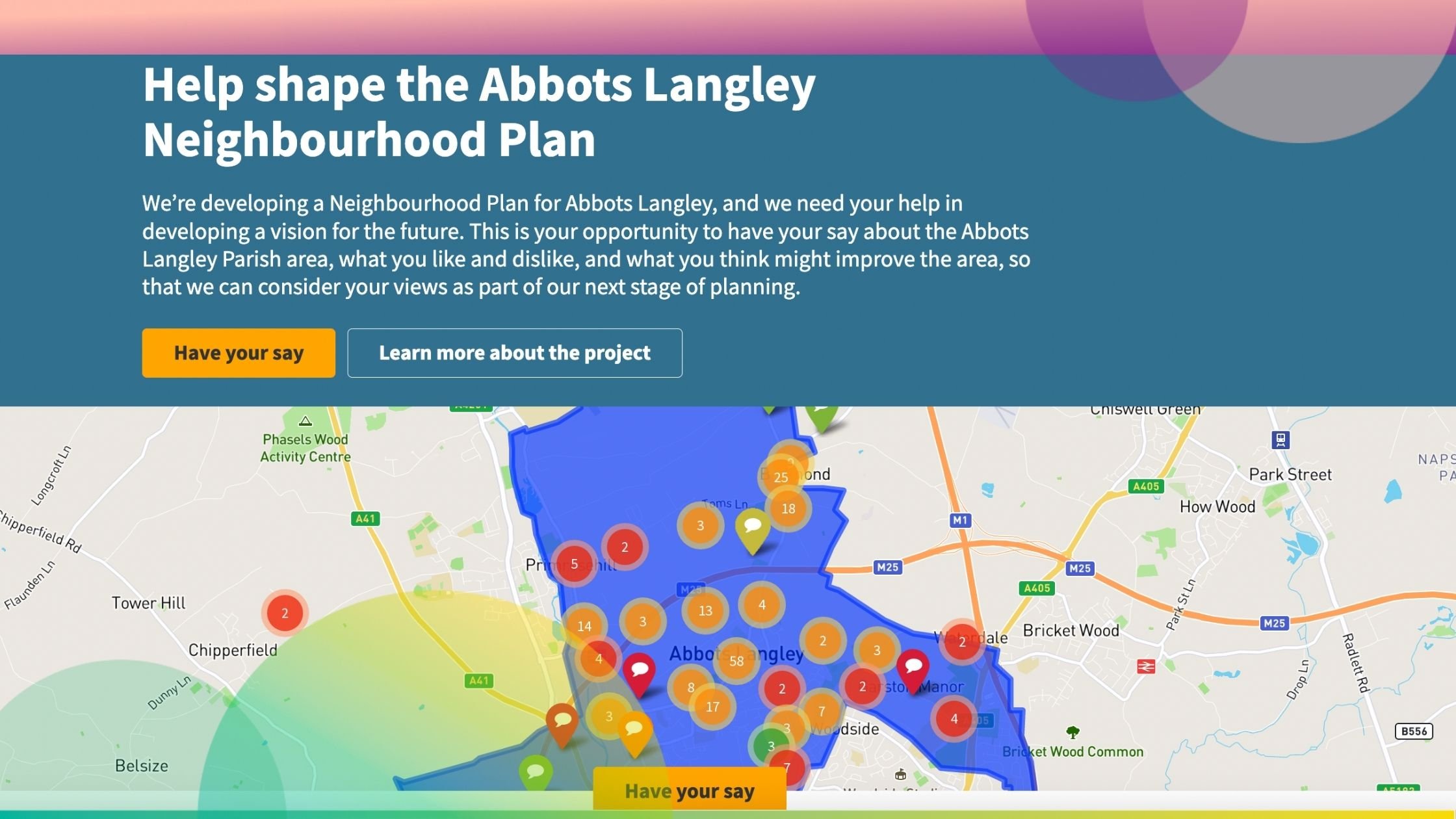Neighbourhood Planning: keeping the community engaged

By David Janner-Klausner | 13/04/22 12:00
3 min read
Neighbourhood Plans are unique in being the only type of plan in England that are initiated by the community and are approved by local referendum. Our latest blog shows you how you can get more people involved in the places they live and work right from the start!
Commonplace has worked on 20 different Neighbourhood plans and is here to support you with yours! Book a free consultation below and our friendly team will show you how our platform can help raise engagement over the long course of your plan.
Preparing a Neighbourhood Plan is often a long process that starts with a core group of community activists or local organisations (such as a Parish or Town Council). The planning process needs to build traction with the community so that the required consultation about the Plan involves a sufficient proportion of the local people. This is so it can be perceived as legitimate and a genuine representation of citizens’ opinions. A Local Plan needs to be ratified with a local neighbourhood planning referendum with a majority of those voting needed to gain approval. This means that the local body promoting the Neighbourhood Plan must have engaged with its community, and convinced enough of the voters to support it.
What is a neighbourhood plan process?

Neighbourhood Plan preparation and adoption is a complex process* and often a drawn out one. Neighbourhood Planning Forums are designated for five years and it is not uncommon for this period to be insufficient to complete the process, with the Forum then applying to its local authority for re-designation. During the years, the composition of the Forum’s activists may change, so maintaining continuity of engagement with the public can be difficult.
This is where digital tools come in.
Building a neighbourhood planning platform
Did you know that the first ever two Commonplaces in 2013 and early 2014 were for neighbourhood Plans? These had a 50/50 outcome: One approved by referendum in 2015; the other not yet. Since then, we’ve been involved in supporting 20 Neighbourhood Plans.
Platforms like Commonplace are an ideal web-based solution for a Neighbourhood Plan. It provides a mix of tools - a map, space to explain the elements of the Plan and its iterations; and a communications platform for posting updates and communicating with the public. The Commonplace platform links easily with social media, providing opportunities to disseminate information by members of the community at the click of one “share” button.
Mapping is a key aspect of a Neighbourhood Plan and one supported thoroughly by Commonplace. At the start of the planning journey, a Commonplace heatmap helps establish what key local issues are for the community and also gives an opportunity to comment on the proposed boundaries for the Neighbourhood Plan. Commonplace enables this conversation to happen with full transparency, building a foundation for the planning work and establishing accountability from the outset.
The straightforward mapping and the built-in communications offered by Commonplace are a very good way to introduce the idea of a Neighbourhood Plan and start a local discussion where the idea might not yet have gained traction. It will help stimulate a local discussion and can also be used as a tool to recruit people for local discussions and workshops.
A long term solution for Neighbourhood planning engagement

Creating and implementing a Neighbourhood Development Plan can be a long process. For example, Abbots Langley Parish Council is now in the sixth year of working on its Plan and has used Commonplace throughout. The website provides continuity of records and helps avoid “process shock” where the community feels surprised when presented with a plan because of the time elapsed since a previous consultation phase. Instead, Commonplace enables continuous engagement and provides a stable record of the plan-making process.
Continuous engagement is supported by the communication tools that are built into Commonplace: the News platform; links with social media; and the ability to easily change and add content to keep the website up-to-date. Furthermore, the Commonplace “Survey Mode” makes it easy to gather data in face-to-face interviews.
The continuous engagement and the long-term record provided by Commonplace build local awareness over time and enable the local Planning forum to keep a finger on the local pulse - ensuring a Plan submitted to referendum as required by law has the full support of the local community.
Notes
* To appreciate the complexity of stewarding a Neighbourhood Plan to adoption - being “Made” - please review this 30-page guide by the Local Government Association. It spells out the duties of the Local Planning Authority - just about every every step requires action by the community organisation… https://www.local.gov.uk/sites/default/files/documents/legal-compliance-guide-pr-dc9.pdf
.png)

